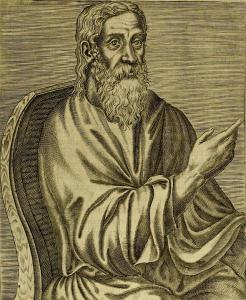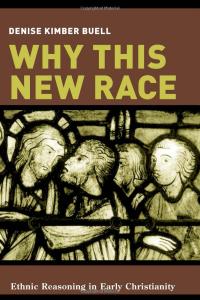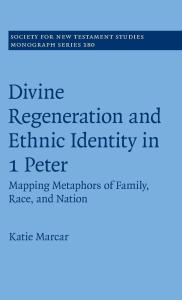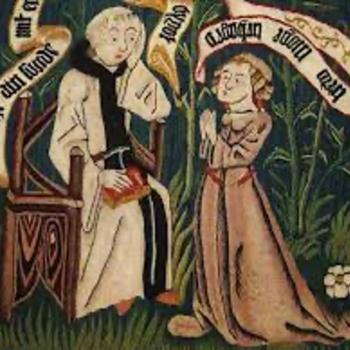Arguably the greatest benefit of being a scholar at a Christian university is the opportunity to develop your faith and pursue your scholarship as one seamless, integrated, and wholistic endeavor. For those of us who used to teach in secular institutions, this contrast is immediately palpable upon being employed at a Christ centered university. While my initial academic training focused on African Americans, religion, and reform in the 19th century, today my interests are the contemporary realities of African American life and religion and reform. I’m consistently drawn toward the scholarship on these topics produced by Christian scholars and ministry leaders in the last twenty to thirty years. Like all things, that scholarship has a context, so I’m also studying the secular scholarship on race. One thing is clear. Fifty years after the civil rights movement, America remains a profoundly broken and fraught racialized society.
I ruminate on this frustrating reality in the context of my conviction that the Bible is God’s answer book for life. I am as convinced as ever that Scripture is God’s revelation of Himself to mankind, and that it also contains His transcendent principles for living in this sin-cursed world. God expects His kingdom people, with the help of Holy Spirit, to discern and apply these principles both individually and corporately wherever, and whenever, they live. Tragically, the American church is so thoroughly fractured and enthralled by our racialized society that American Christians cannot offer any more effective solutions to our national race problem(s) than Critical Race Theorists can. In fact, Christians themselves are all too often part of the problem. Despite all of the Christian organizations working on racial justice issues for decades, something remains profoundly amiss, because many fellow Christ followers frequently dismiss these organizations’ efforts with the most popular pejorative du jour or with the old canard that racial issues are not spiritual issues. I am weary of this.
The convergence of my academic and spiritual perspectives has caused me to blur the distinction and to look to Scripture for what we are missing. Without training in biblical languages, and with much trepidation, I began to search out what we know about the Old Testament’s use of the Hebrew words goy, am, and mishpahoth, and the New Testament’s use of the Greek words ethnos, genos, and laos.
Since people in biblical times were just like us (made in God’s image but fallen), it’s safe to assume that sin infected ancient societies at least as much as it has current ones. It’s a “no brainer” that from the rise of distinct people groups (the “table of nations” in Genesis 10) groups have had ways of thinking about and interacting with other people that were not always kind, welcoming, and equitable. Surely they thought in terms of degrees of similarity and difference between people groups. Surely there were political, economic, and social power differentials and inter-group animosities baked into the structure and functioning of the various ancient empires that tracked closely with widely recognized ethnic identities.
After considering these truths, I am all the more in awe of the fact that God’s revelation of His plan of redemption and his coming Kingdom was so effectively filtered through all of these cultural and ethnic prejudices, social and political inequities, and sinful prophets, priests, and kings. We serve an amazing God! I am so thankful that our sovereign God made sure that our inter-group prejudices and rivalries would not block God’s revelation!
Ground zero for the overlap between my personal Bible study and my academic pursuits is I Peter 2:9-10:
9 But you are a chosen race (genos), a royal priesthood, a holy nation (ethnos), a people (laos) for his own possession, that you may proclaim the excellencies of him who called you out of darkness into his marvelous light. 10 Once you were not a people (laos), but now you are God’s people (laos); once you had not received mercy, but now you have received mercy. (ESV)
This is the only Bible passage that uses all three of these words to explain Christian identity. While commentators have traditionally read this passage as applying Old Testament descriptions of Israel (Exodus 19:6, Deut. 7:6, Isaiah 43: 20-21) to Christians, there is a particular significance in Peter using these three words together, each of which were used by the Greeks to emphasize slightly different aspects of ethnic group identity. This is the only place in the NT where genos is applied to Christ followers, and the only place where ethnos is explicitly applied to Christ followers. Genos implied shared descent more strongly than the other two words, and seems to follow logically from chapter 1:23 where Peter says that believers are born “not of perishable seed, but of imperishable through the living and abiding word of God.” We get our modern words gene and genetics from genos, and our word ethnicity from ethnos.

I refuse to view this unique passage as insignificant, because regardless of their supernatural inspiration, it is clear that the biblical authors were as much products of their cultural context as other humans, and could only express revealed truth through the terminology and ideologies current to their time and place. As I sought to unpack Peter’s teaching, I happily discovered that in recent years a group of New Testament scholars have been thinking deeply about the early Christian usage of these Greek words, and they have shown that through the third century it was common for church leaders and apologists to use them to explain their Christian identity to non-Christians. Although the cultural context precluded early Christians from primarily self-identifying as a new “religion,” nothing was lost. In fact, I would argue that much was gained in appropriating the language of ethnic group identity. Followers of “The Way” were indeed a new “people” never before seen in the world. The ancients considered many elements to constitute one’s ethnic identity or sense of peoplehood, and worship practices ranked alongside shared history, kinship, descent, language, and non-religious customs as among the distinctive traits defining a named people group.

In so far as we Christians today think of ourselves as merely practicing or “adhering” to a “religion,” we fail to embrace the full range of implications that derive from us becoming a new person in Christ and joining God’s kingdom (John 1: 12-13; 2 Corinthian 5:17; Ephesians 2:14-15; Colossians 3:9-10; 1 Peter 1:23). We exchange that revelation for an impoverished and limited view of our identity as Christ followers that makes it too easy for us to invert the prioritization of our natural and spiritual identities. Once we do that, we adopt our culture’s values in how we interact with the “other” and our actions and reactions betray the fact that we have prioritized our earthly citizenship over our eternal heavenly citizenship. Viewing our identity in Christ as merely a religion incentivizes us to downplay the corporate and eternal characteristics of our citizenship in Christ’s Kingdom, and simultaneously makes us susceptible to embracing social, political, and economic ways of being for the sake of popularity or power, contrary to Christ’s message and example. Christ called his followers to be a distinctive people. Regardless of where we live, kingdom citizenship will cause us to live counterculturally to many of the norms of our earthly culture. (John 17:16; I Peter 2:11; Hebrews 11:13-16; II Corinthians 4:18)

This reminds me of experiences I had many years ago when I used to teach world religions. At that time, I participated in multiple professional development opportunities. On more than one occasion I recall being told to teach about Islam as a “way of life.” I understood this advice to be an effort to distinguish Islam from the audience’s presumed default understanding of religion that had been primarily informed by Christianity. This statement perplexed and frustrated me because I wondered how the religious “expert” in front of me did not know that Christianity was also a “way of life,” and that therefore the phrase wasn’t the heuristic device he or she purported it to be. My takeaway has been that many otherwise educated people falsely believe that being a Christ follower is some sort of “add on” identity that can be easily compartmentalized and reduced to a few discrete rituals and doctrines.
Thinking about ourselves as part of an eternal spiritual people group — a new ethnos, genos, or laos – speaks volumes more about our identity than merely how we worship. It presupposes we are a people group with a common culture based on a shared value system, shared customs, and a shared history, and that we are known far and wide for that culture. Our corporate worship customs are merely one part of our way of life.

As an African American, I don’t have the option of going anywhere and not being black. A person with a foreign accent will always betray their real identity. They can’t help it. This is how it should be for citizens of God’s kingdom: wherever we are, we should be as conspicuously unique in society as a person with a foreign accent — or a black man.
I plan to use my subsequent posts to continue exploring my thoughts along these lines.













